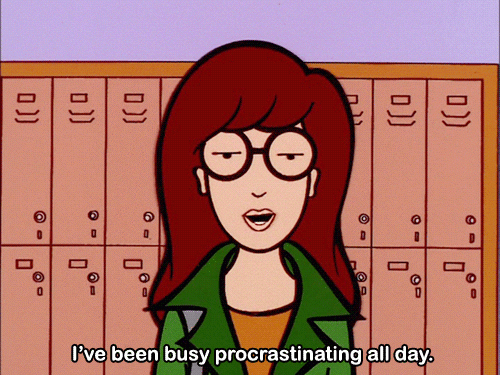
This article was written by an external contributor. Anca Coman has some great resolutions to help you be more organised with your university work.
What’s the key to surviving exam and deadline season at university, you ask? Organisational skills. If you don’t know where you stored your work, or you’re tasked with putting together a group project, or you simply spend too much time watching Netflix instead of doing proper work, 2019 could be a new beginning for you.
At Debut, we’re having a look at some of the adjustments you can make this month to make for a more productive year, and changing your study habits is a good place to start. So without further ado, here’s a quick guide on how to make your life easier and become more organised in 2019:
Make schedules & deadlines

I know you’re tired of hearing the ‘deadline’ word, but let’s think outside the box for a second. Deadlines are extremely useful when preparing and motivating yourself for work. Before going to bed, try to spend 15 minutes thinking about what you have to do the next day. If you’re more old-fashioned, a journal or an agenda would be the best way to write down your priorities and their deadlines.
Are you more tech savvy like us? Free mobile apps like Todoist are great for setting up deadlines, writing comments, and even associating a colour with your tasks for formatting purposes, eg: red for shopping, blue for work. After all, nothing compares with that satisfying feeling you have when you cross off the tasks from your to-do list.
Use group work tools

Being part of a group project at university is definitely not an easy assignment. Miscommunication and timing issues often delay progress on the work, which could impact on your overall grade. Sure, meeting with your colleagues in the library could solve half of the general problem, but how do you make sure you keep in touch with them and check the actual development of your work? We’d recommend free tools like Slack or Trello, which could give you complete control of how things are going.
Slack is used to easily communicate with the members of your group project and exchange ideas when not in the library. Trello is a project management app which gives you an overview of the group work, and assigns tasks to different members. You can set tasks and move them from the ‘to do’ status to ‘in progress’ or ‘to be reviewed’. Both tools have the laptop and the mobile version, so you can use them free of charge anytime, on any device!
Make loads of back-ups

After long days and sleepless nights of hard work, the worst thing that could happen is realising you haven’t saved the progress you’ve made! Technology is not always a good friend, so different errors might come from nowhere and delete everything you have, or your computer might just crash. Back-ups are a must in order to become more organised!
Make sure you don’t only save your work on the computer, but that you have a USB handy. If you’re afraid you might lose something physical, then Google Drive and Outlook are two other tools which could be really useful for storing your stuff and accessing it from any device.
Clean up your files and folders

Isn’t it annoying when you open your laptop and your desktop looks like a jumble sale? Being more organised can be taken very literally; you basically have to clean up your mess and put it in order. Creating files and folders will save you lot of time, and it will give you the impression of a well-arranged place.
Instead of having all documents, images and PowerPoint slides in a single folder, you might want to organise them in accordance to your university subject or the format of the file. The good news is that you don’t have to stick to a certain rule – you could be as creative as you wish! Mix and match whatever it makes sense to you and helps you, from colourful documents to well-structured folders.
Don’t procrastinate

Everyone is allowed to have small breaks while working, but make sure you don’t turn them into a Netflix marathon or a social media scroll-fest. Self-control is very important when working as it makes you say ‘stop’ to different temptations. Don’t leave your work until the last minute. Instead, try to work a little bit every day. Hours in front of the TV or outside with your friends will only slow down your progress.
Learn how to control yourself and how to say NO to spending too much time doing something else. Reward yourself after a couple of hours of work with a TV series episode or an Instagram binge, but make sure you know how to come back to your work. In the end, you’ll have the best of both worlds – progress on your work and some much-needed time off!
Connect with Debut on Facebook, Twitter, and LinkedIn for more careers insights.


